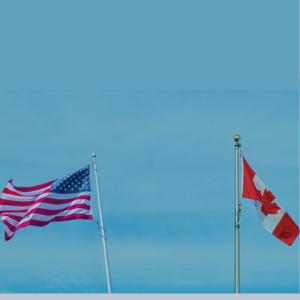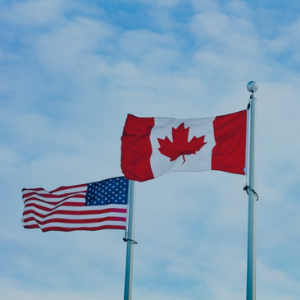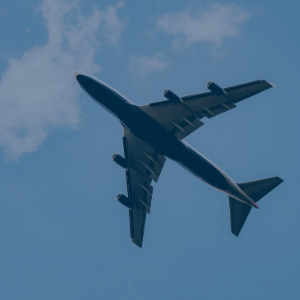
INNOVATIVE’s survey on the Boeing 737 Max 8 controversy shows not only a potentially significant negative impact on consumer choice to fly the 737 Max, but also on Boeing’s brand position in the global marketplace, particularly among frequent fliers.
On March 12, 2019, in response to two Boeing 737 Max 8 jets crashing within five months of each other, killing hundreds of passengers, the European Union temporarily grounded the 737 max until further investigation. U.S. and Canada followed within a day. Despite Boeing’s defense of the safety of its aircraft and a promised update to its flight control systems, the company’s investors headed for the exits, resulting in losses of more than $40 billion in stock value from its 2019 peak. As investors fled, the future of Boeing’s 737 Max 8 hung in the balance. Would customers still fly the Boeing 737 Max 8? More broadly, would they choose to fly Boeing planes at all?
Innovative Research Group, in a workshop presentation to the International Association of Business Communicators (IABC), presented its survey findings on consumer choice in the face of Boeing’s existential controversy.
Among those that know they can switch to a different type of plane, there is a major negative impact on consumer choice regarding the Boeing 737 Max 8. Nearly half (47%) say they are ‘definitely’ or ‘very likely’ to switch flights to avoid the 737 Max 8.
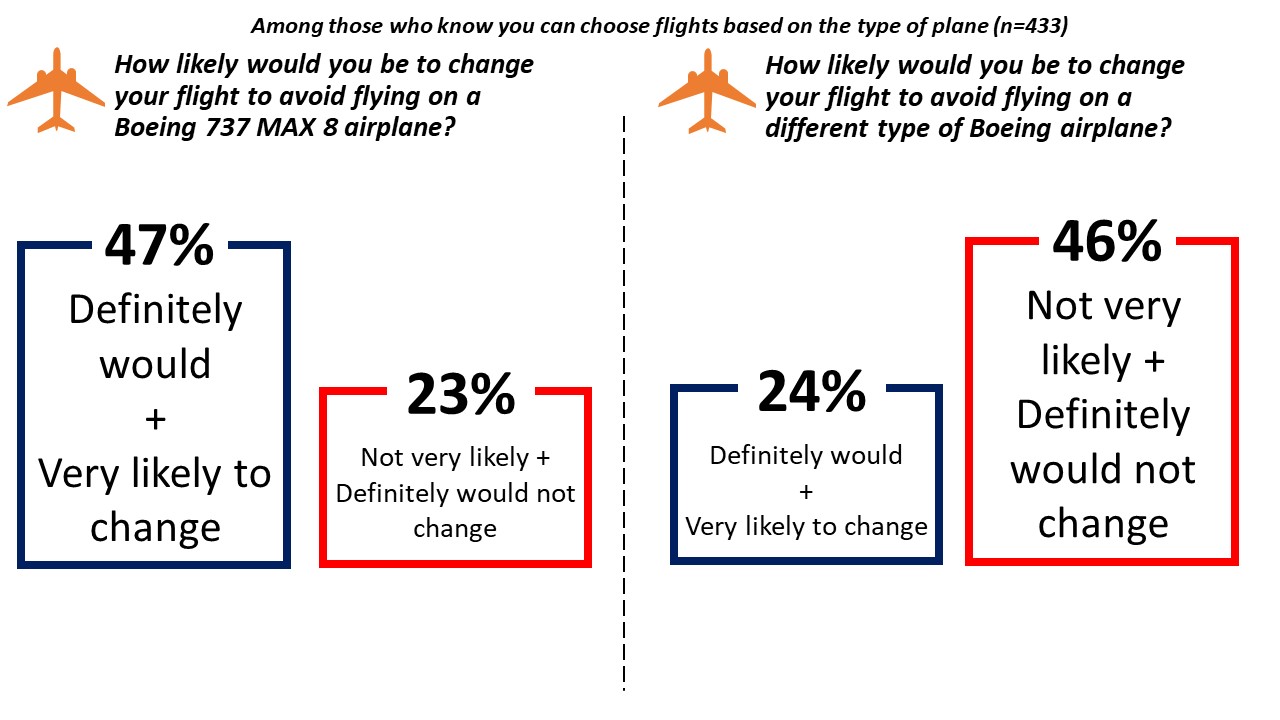
The controversy has shown a potential broader impact on Boeing’s position in the market, as well. On brand choice, 1-in-4 (24%) say they would ‘definitely’ or ‘very likely’ change to avoid flying on another type of Boeing airplane.
Why “potential” given these numbers?
Well, our research shows that most consumers are not even aware they have a choice when it comes to the type of plane on their ticket. Only a little over a third (36%) of Canadians know they can choose flights based on the type of plane, and only 5% of Canadians change their flight ‘very often’ based on plane type. And when asked the most important consideration for choosing a flight, most say cost or convenience, with almost no mentions of aircraft type.
INNOVATIVE also examined two critical variables to further understand the impact on Boeing brand choice:
- How often a person travels by plane;
- And feelings of dread, or the fear of unknown risks when it comes to traveling by plane.
The most frequent fliers, those who travel at least three or more times a year, are much more likely to shift away from both the 737 Max 8 and, to a lesser extent, the Boeing’s brand. A third (32%) of frequent fliers would definitely change their flight to avoid taking a Boeing 737 Max 8 airplane, and 1-in-5 (20%) frequent fliers say the same about other Boeing commercial planes.
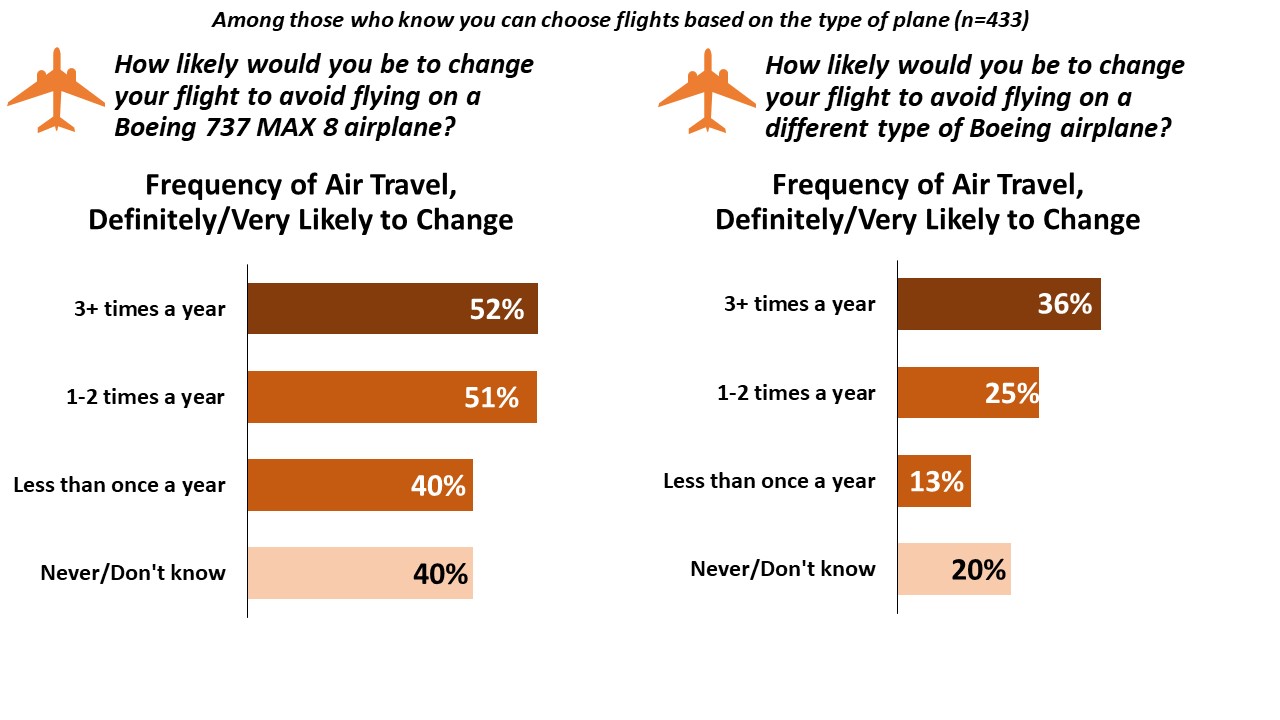
Similarly, consumers who already feel that flying is dangerous are much more likely to avoid 737 Max 8 planes and are more likely to shift away from the Boeing brand, generally.
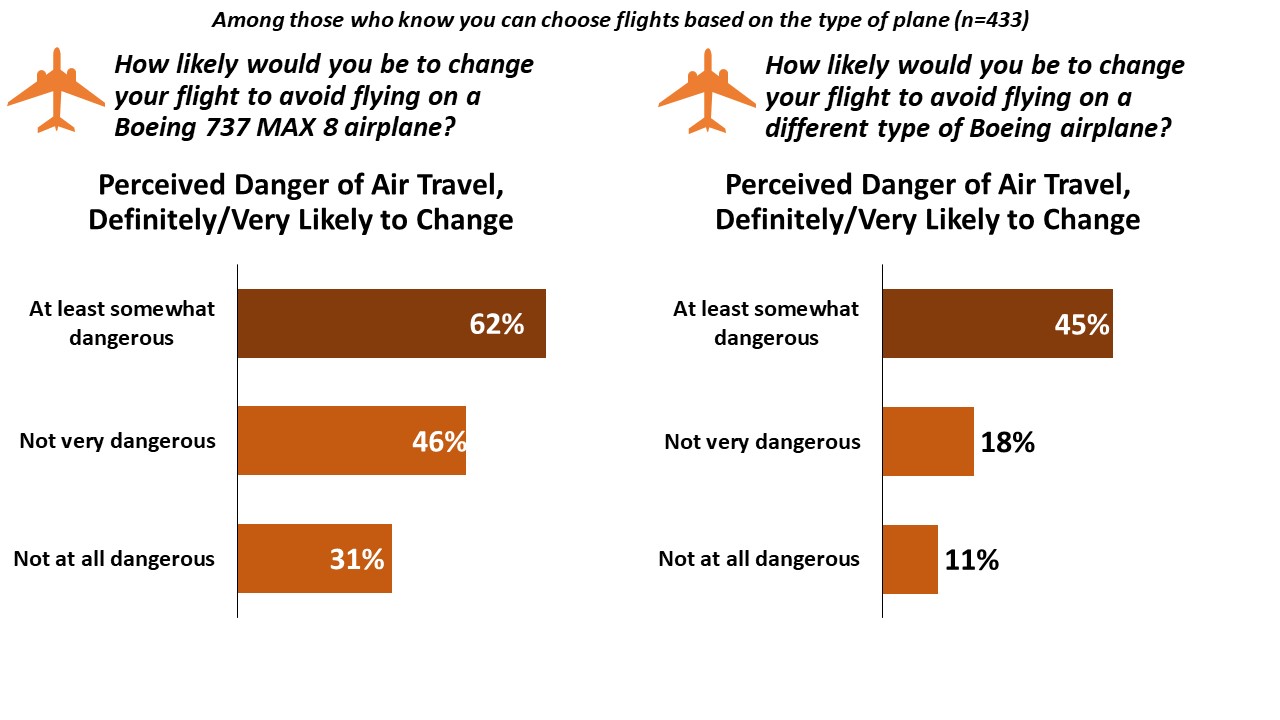
The 737 Max 8 controversy has the potential to shift consumer behaviour away from Boeing commercial jets and negatively impact the company’s brand. Our research shows that, even if the 737 Max 8 sales recover and production begins again, the company will need to actively manage this threat if it intends to restore confidence in its capabilities as an industry leader.
The online survey on Boeing and the 737 Max 8 controversy fielded May 27th-30th, 2019, with a weighted sample of n=1,200. For additional details on methods and a full report, click here (INSERT LINK).

